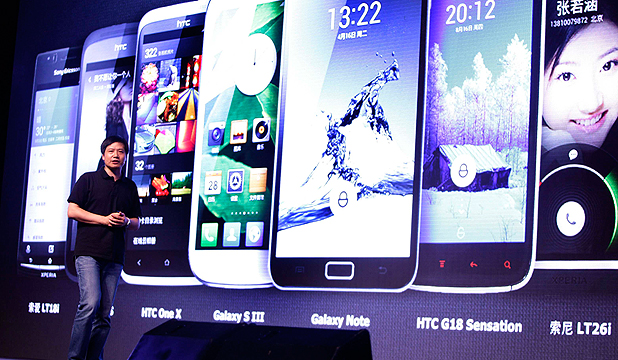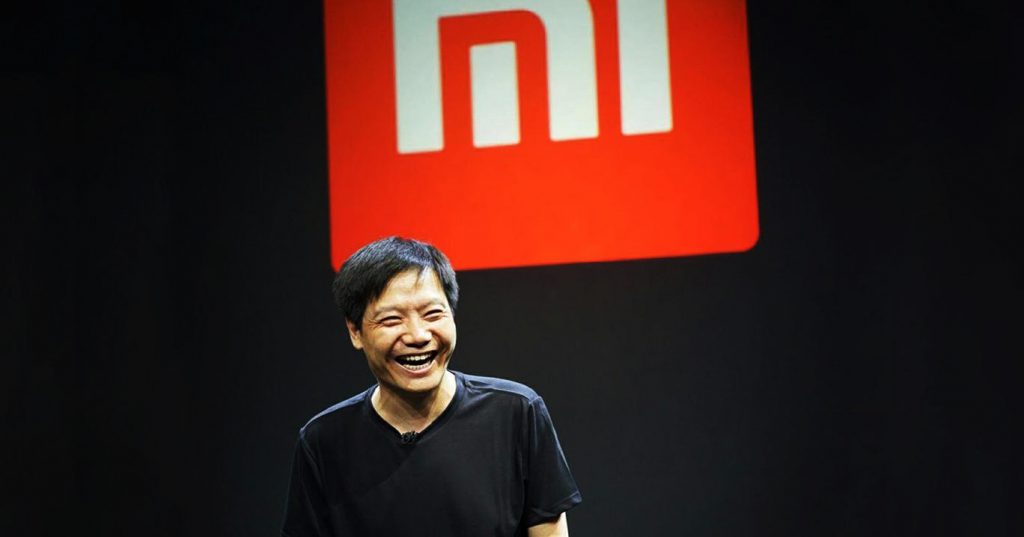Thanks to a plethora of articles online, we know about entrepreneurs like Jack Ma, Mark Zuckerberg and Steve Jobs almost as well as we know about our friends.
However, there isn’t as much said about Lei Jun, the founder of Xiaomi, a company that has been making steady progress, and disrupting its competitors’ products since its inception in 2010.
A relative latecomer to the startup game, the now 46-year-old Lei had spent most of his working career (1991-2007) as an engineer and CEO at Kingsoft, a Chinese software company.
His first venture was also not exactly tech-related, and was actually an online bookstore called Joyo.com. Founded in 2000, it was eventually acquired by e-commerce giant Amazon.com in 2004 for US$75 million.
It’s now better known as Amazon China.
An angel investor who has invested in over 20 startups, he told Tech in Asia that “from 2007 to 2010, he has overseen over 70 funding rounds among his portfolio companies”, and addressed that via his own experience in investing, he became more familiar with local and global investors, which had not only given him an insight on “what they like and don’t like”, but also helped him build trust among them – something that came in handy with his eventual involvement with Xiaomi.
It was also through his investing experience that he realised the potential of mobile internet, and in 2010, introduced Xiaomi to the world as a startup selling “smartly designed phones at cheap prices over the Internet”.

Following a successful run, with increasing sales each year (albeit disappointing figures in 2015), the company has since expanded from its origins, and now sells more than just smartphones – producing laptops alongside consumer products such as fitness trackers, action cameras, SMART televisions and even a smart home device (IoT) system.
Most recently, it even released a mirrorless camera to much fanfare and excitement.
There’s much to be taken from his experiences, and here are a few that business owners can definitely take a leaf out of.
1. Seize The Moment, Timing Is Key

We hear the phrase ‘seize the moment’ all the time, but perhaps one of the best examples of it actually paying off was how Lei took a strategic and confident leap of faith, entering a market saturated with smartphone-producing tech behemoths and releasing Xiaomi’s first handset (Mi1, August 2011) around the time of tech giant Apple’s latest iPhone (4S, October 2011).
However, as compared to the iPhone, which is less versatile but nonetheless loved, the Mi1 was boldly shipped out with its own MIUI, which also supported Android and other 3rd party ROMs.
Sold at an initial price of CNY1999 (SGD$410), it maxed out its 300,000 pre-order limit in the first 34 hours – not bad for a new company with no preceding devices for consumers to make comparisons from.
Perhaps now, instead of saying ‘Carpe Diem’ all the time, Lei’s more lengthy “Things get much easier if one jumps on the bandwagon of existing trends. A pig could fly if it finds itself in the middle of a storm.” might be better.
2. Sustainability, User Experience > Winning Superficial Battles

When you’re on the path to success, it’s easy for many to make comparisons between yourself and your competitors.
Xiaomi, being among big names like Apple and Samsung, is no doubt subjected to these as well.
However, instead of struggling to keep up with others’ impressions of what they should be, Lei remains grounded, and insists on the importance of managing internal and external expectations instead.
“We used to grow several-fold a year. But the global economy is a mess, and we grew 33% in the first half of this year. Everybody said, ‘you’re not growing fast enough.’ That’s absurd. We’re still a five-year-old startup. This kind of expectation weighs heavily on us.”
It is likely that through his years of experience in managing, and investing in companies that he realised that sustainability, over rapid growth is more important in the long run.
“Five years ago, we had no baggage. We started from zero. Now everybody challenges us, and we feel like we’ve got something to hold on to and we need to win every battle. I don’t think this is what I want. We can easily get lost in this competition. What we want to accomplish is we want to be a stronger player in the smartphone industry, not a bigger player. […] The core is to maintain the baseline – user experience and product innovation. How are we going to make products that can wow people?
3. You Don’t Need To Always Follow What Others Are Doing

Following the thread of sticking to one’s guns is Lei’s stubborn insistence on keeping their phones non-waterproof, in spite of competitors’ swift leaps onto that bandwagon.
The reason? The price of the devices would go up by almost 20 to 30%, something that goes against Xiaomi’s philosophy of keeping their devices affordable.
What’s more, their main markets, India and China, are especially sensitive to price changes.
Aside from that, Lei also stated that even with waterproof qualities, the phone isn’t guaranteed to provide long-term safety, as “even a tiniest of cracks can render the water-proofing function useless”.
Regardless, he states that if customers are fine with the costs inevitably going up due to waterproofing, the company might eventually make one to cater to these requests.
4. “Every Group Of People Has Its Own Needs”

If it seems like Xiaomi is putting its eggs in too many baskets with ventures in the production of various devices, the move is really less due a lack of clear direction, but in actual fact, a firm insistence on one.
When asked by The Wall Street Journal on Xiaomi’s stance on innovation, Lei mentioned that even though big breakthroughs are harder to come by these days, “there are many things in the user experience that’s worth it for [them] to think harder and innovate”.
He also addressed the stark difference between how companies should think when releasing a product previously, and now:
“In the past you made a phone, hoping to sell it to billions of users in the world. Now you can’t think in this way. You’ll have to design different phones for different crowds in different scenarios. It will be hard to have big innovations targeted at all users. But innovating for different user scenarios hasn’t really started. Every group of people has its own needs.”
Perhaps it is due to this, that instead of creating exclusivity on their products, their MIUI, an Android ROM which their smartphones and laptops run on, is tweak-able, and has apparently “gained the recognition of Android fans across the world”.
In fact, Lei also expressed the desire to have Xiaomi eventually operate in different OS-es – which may include Windows Phones.
As an inevitable comparison to a notoriously not-as flexible system, Lei further differentiates Xiaomi from Apple in an interview:
“[Both] are completely different things […] Xiaomi’s system can be changed by anyone, thousands of designers can create all functions and solutions.”.
5. Save Running Costs, Use The Profits On Even More Innovation

When it comes saving business-running costs, Lei’s strategy is to “spend next to nothing on advertising; selling on the web to avoid having to give retailers a cut; and relying on a loyal band of customers to spread the word on social media”.
Physical stores are also kept to a minimum number, and in spite of their popularity in Singapore (remember when 5,000 units of the RedMi Note was snapped up by Singaporeans in 42 seconds back in 2014?), it was only earlier this month that they opened their first brick-and-mortar space.
Regardless, the Singapore flagship is more of a showcase as compared to a full-fledged outlet – definitely signalling the company’s wish to still keep their sales in the online realm.
Lei mentioned in an interview that what he wishes to do by reducing these costs, is to actually put these savings “into making better quality phones” – something that any logical consumer will appreciate over the convenience of stopping by a shop to get an item.
6. Great Marketing Goes A Long Way

Following their thread of low spending on advertising (3.2% of their spending vs. Samsung’s 8%) and relying on word-of-mouth, Xiaomi also takes a unique, yet effective approach to marketing of its products.
In fact, it has inspired so much loyalty that Business Insider has declared that “Xiaomi could become the first Android phone company with a fanbase as rabid as Apple’s”.
Xiaomi fans are known simply as ‘Mi-fans’, and celebrate ‘Mi-fan Day’ every year on April 6, during which the company also holds special marketing campaigns and announces new products.
According to an article from Next Web, these fans are even known to travel across China to attend new launches, and the thousands-strong crowds even require heavy security to handle them.
The best part? The fandom actually converts to sales.
In fact, during their annual Festival in 2014, the company had sold 1.3 million handsets in mainland China, Hong Kong, Taiwan as well as Singapore, raking in CNY1.5 billion (US$242 million) worth of sales – in, get this, 12 hours.
Basically, its marketing efforts are mostly pumped towards getting user engagement, and they do so by creating, and interacting with extensive online communities of fans, hosting fan-events (one of which was a party in an expensive nightclub), and also offering flash sales to create hype.
7. Always Listen To Your Customers

Other than pouring out goodies to them, Lei sees the utmost importance in consulting the best for ideas, and improvements – Xiaomi’s fans.
Comparing himself to Apple’s way of innovating by setting their own rules, he stated that this model would not work in a place like China.
In an interview with Forbes, he states: “If [Steve Jobs] had lived in China, I don’t think he could have succeeded. […] Jobs was a scrupulous perfectionist, while Chinese culture emphasises the middle path. [In China] you also need to make compromises”.
Thus, Lei relies on the consultation of loyal fans, and is said to “spend hours on Mi Talk, Xiaomi’s chat site, to solicit feedback from users”.
This seems to be a common motto among Xiaomi’s management, with co-founder and vice-president Wanqiang Li citing their success to “customer participation [because] Xiaomi isn’t selling a product, but the desire to be a part of something”.
8. There’s Only One Person You Can, And Should Be – Yourself

A self-proclaimed fan of Apple’s founder Steve Jobs who has been quoted to be “greatly influenced” by the latter, Lei was inspired by book Fire In The Valley, on the early days of the PC industry, to follow in Jobs’ footsteps.
In spite of this, he refuses to be called the ‘Steve Jobs of China’, of which many media have claimed him to be.
“I’ve said on many different occasions that if I had been called the ‘Steve Jobs of China’ as a 20-year-old, I would have been very honoured. As a 40-year-old, however, I don’t want to be considered second to anyone.”
Lei Jun, The Underrated Entrepreneur
Xiaomi, just like its founder, is an underdog that is quickly catching up – and for very good reasons indeed.
With his ambitious, yet grounded business philosophies, there’s no doubt that we’ll definitely be seeing him and his brand more in the future.
Feature Image Credit: weibo.com/leijun










